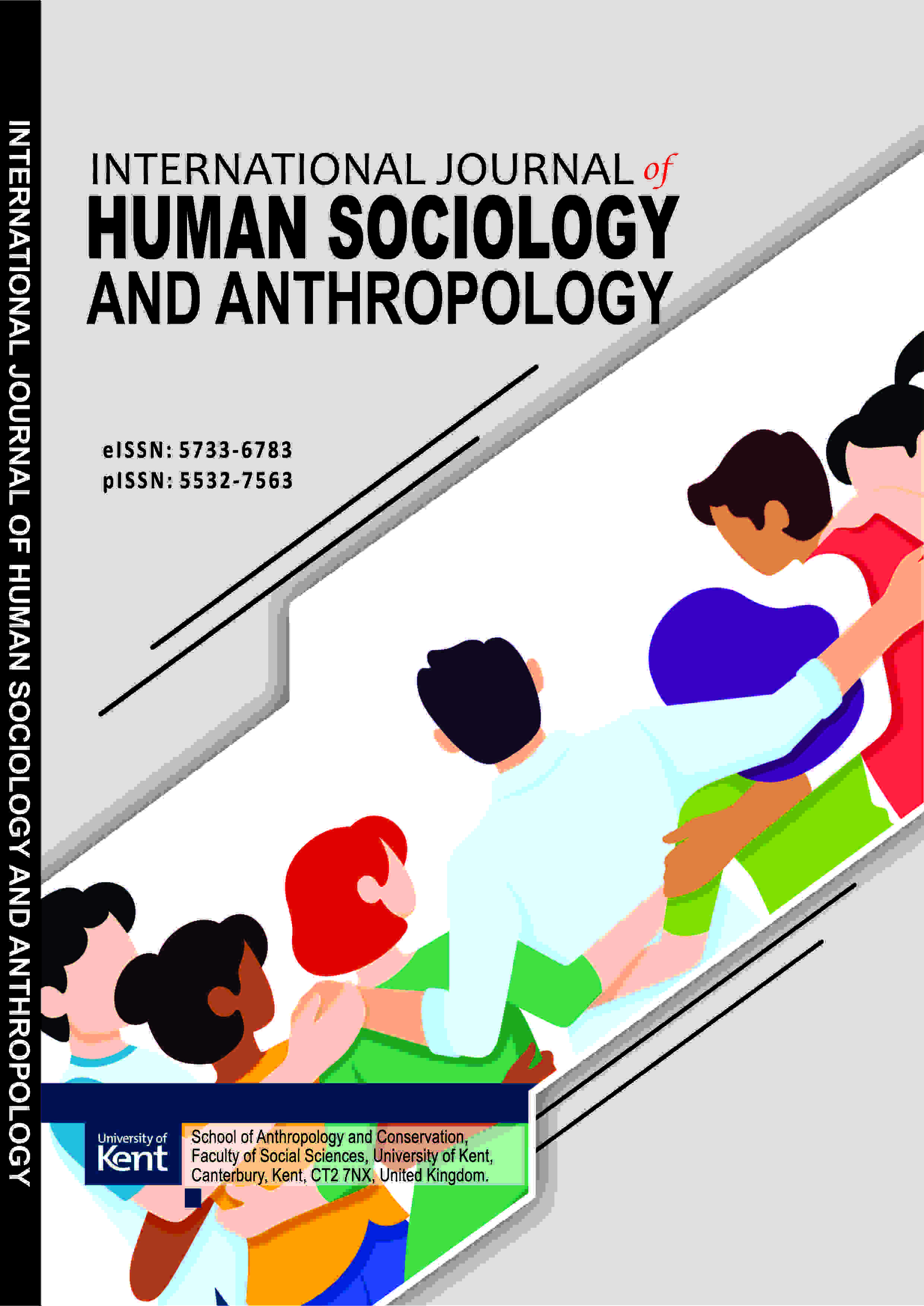INTERNATIONAL JOURNAL FOR HUMAN SOCIOLOGY AND ANTHROPOLOGY (IJHSA)
COMPARATIVE ANALYSIS OF LOCUS OF CONTROL AND SOCIAL CONTACT DISTANCES AMONG INTERNATIONAL STUDENTS FROM THE REPUBLIC OF MOLDOVA
E-ISSN: 5733-6783
P-ISSN: 5532-7563
DOI: https://iigdpublishers.com/article/651
This study explores the intricate relationship between social contact distances (SCD) and locus of control (LOC) among international students. The research highlights that progress during academic years may contribute to reducing SCD, indicating an evolution in accepting and approaching other cultures as students advance academically. The analysis of correlations between LOC and SCD shows that students with an internal LOC reveals lower SCD towards their home country's population, emphasizing the influence of cultural cohesion and emotional bonds in managing social relationships. The study also reveals that students with an internal LOC show reduced SCD with the host country's population, highlighting how the perception of personal control influences the level of social closeness in an intercultural context. In conclusion, the research underscores the importance of academic context and cultural factors in shaping intercultural attitudes and behaviors.
Svetlana Rusnac Johnny Khory
EAIE. New report: International admissions 2023–2024. Available from: https://www.eaie.org/blog/report-admissions-2023-2024.html (Accessed on 12.01.2024).
Activitatea instituțiilor de învățământ superior în anul de studii 2021/22. In: Statistica Moldovei. Biroul.
Național de Statistică al Republicii Moldova. 19.12.2023. Available from: https://statistica.gov.md/ro/activitatea-institutiilor-de-invatamantsuperior-in-anul-de-studii-202324-9454_60853.html (Accessed on 10.01.2024).
Rotter, J. B. (1966). Generalized expectancies for internal versus external control of reinforcement. Psychological Monographs: General and Applied, 80 (1), 1–28. DOI: 10.1037/h0092976
Park, R. E. (1924). The Concept of Social Distance as Applied to the Study of Racial Attitudes and Racial Relations. Journal of Applied Sociology, 8, 339-344. Available from: https://brocku.ca/MeadProject/Park/Park_1924.html (Accessed on 26.09.2022).
